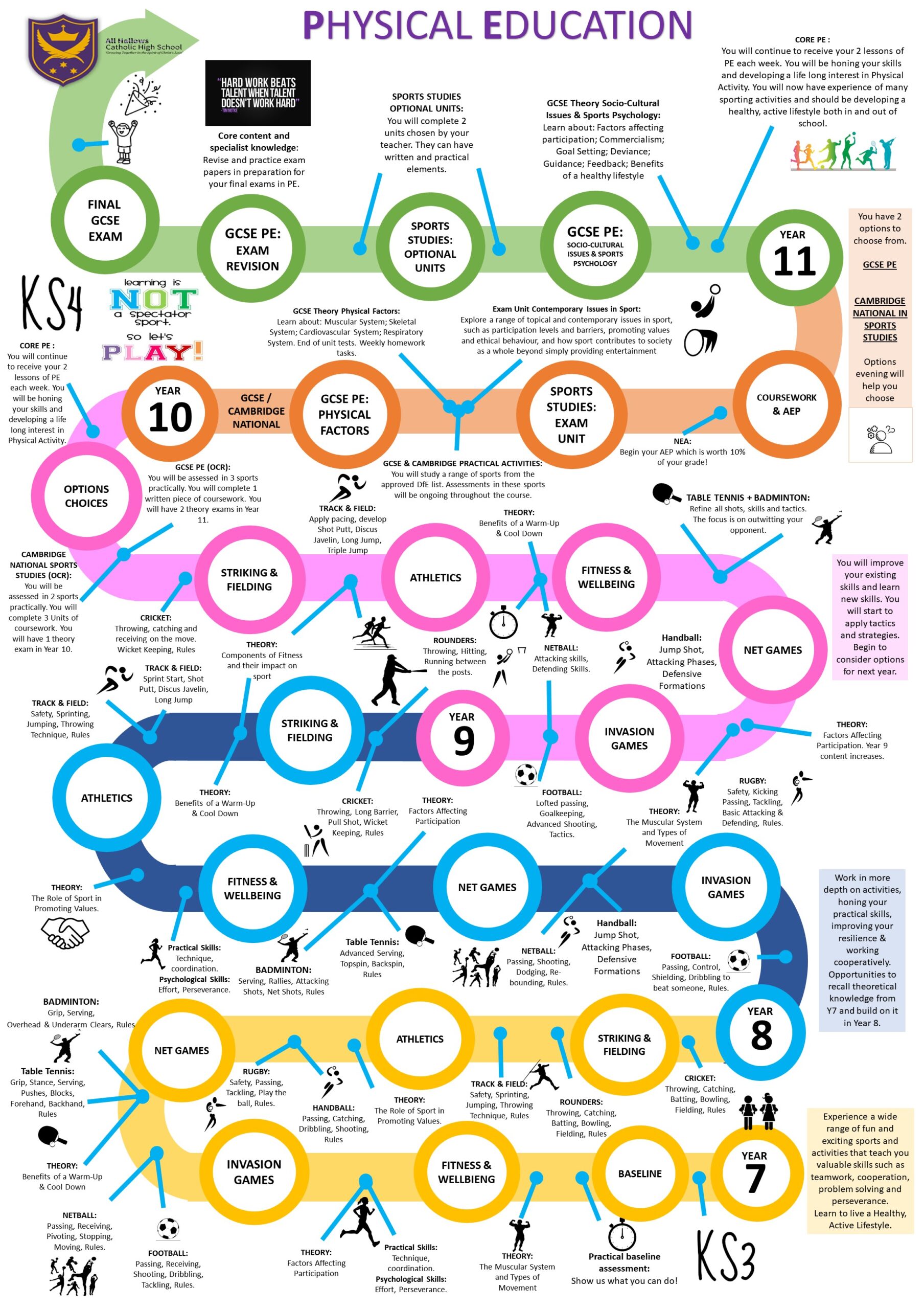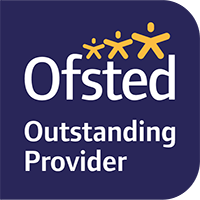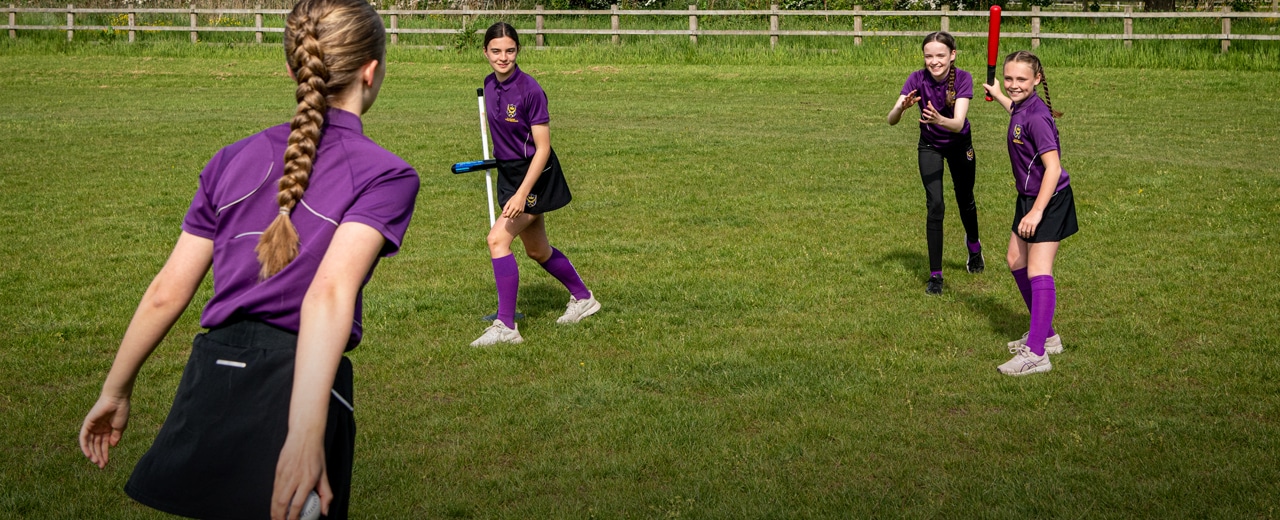- Home
- Our Curriculum
- Physical Education
Physical Education
Teaching Staff
- Mr D Finch BSc – Head of Department
- Mrs R Preston BSc – Second in Department
- Mr A Eastham – Class Teacher
- Mrs L Posner BA – Class Teacher
- Mr I Sanderson BA – Class Teacher
- Miss B Goodwin BA – Class Teacher
Department Aims
INTENT
The Physical Education (PE) curriculum aims to offer all students an ambitious physically orientated in-depth learning experience, promoting health and well-being, with the express aim of developing motor competence along with rules, tactics and strategies encouraging healthy participation and the desire to follow a life of physical activity.
Our programmes of study enable students to develop their physical, mental, social and emotional skills through taking up a range of roles (performer/official/young leader) within the subject area. We aim to facilitate play, physical activity, physical education, sport and active learning, all of which combine to improve physical literacy.
All activities take place within a safe, happy and challenging learning environment in which all students feel secure and confident in their own ability to progress.
We provide the opportunity for our students to access a range of pathways linked to further participation in physical activity and sport across different levels of performance (recreational to elite individual/club level).
Alongside this we educate all students in terms of the opportunities available in further education to obtain qualifications/pursue a career in the sport and health/fitness industry.
At Key Stage 3 all students have at least 2 lessons of Physical Education per week and are taught in single sex ability classes. Please see below for the Curriculum Map.
Due to recent changes in the PE GCSE, theory is now being taught through PE practical lessons in years 7, 8 and 9.
Course Content Overview KS4
The Physical Education department is pleased to offer two different options; OCR GCSE 9-1 Physical Education and Cambridge National Certificate in Sports Studies. We feel that both awards provide an excellent pathway for our students to follow. Both the Sports Studies and the GCSE Course are worth the equivalent of one GCSE and will both enable students to access college courses. Each course has a ‘practical’ element to lessons and assessment.
At Key Stage 4 all students have 2 hours of core Physical Education per week and are taught in single sex ability classes. Please see below for the Curriculum Map for Year 10 and 11.
Expectations
Both courses require:
- A commitment to practical activity.
- Involvement in extra-curricular activity.
- Good level of personal organisation.
- *If GCSE pupils must compete in sport outside of school life.
Each course will have 3 x 50 minute lessons.
IMPLEMENTATION

IMPACT
Our Physical Education curriculum aims to inspire a generation and provides the foundation for independent learning and lifelong participation within physical activity and recreational/competitive sport.
Students are embodied to utilise the skills and knowledge acquired through Physical Education, encouraging them to take responsibility for their own physical development, mental, social and emotional wellness, which in turn will help them lead an active and healthy lifestyle. They will also be able to transfer their skills, knowledge and fitness to support everyday life activities as well as those based on physical challenge.
Students who complete an exam based qualification in Physical Education will be able to progress into the world of work with a nationally recognised qualification and the attributes, experience and the knowledge to be successful in their future career pathway. Our students are given the opportunity and support to achieve the best grades possible which in turn hold them in good stead for achieving their future aspirations.
Homework in Physical Education
Key Stage 4
Homework is in either of the two GCSE theory lessons. Independent study is required after every GCSE theory lesson in order for students to achieve the best they can and to help consolidate learning in lessons. Revision Guides for students are available to purchase from school. Please see Mr Finch for a letter if you wish to purchase one.
All students are also encouraged to extend their learning outside of lesson time by attending extra-curricular clubs that run during and after school and play competitively in a variety of sports in and outside of school
Physical Education GCSE – OCR Specification
GCSE (9-1) PE includes the compulsory study of: Applied Anatomy and Physiology, Physical Training, Sports Psychology, Socio-Cultural Influences and Health, Fitness and Wellbeing. Alongside this are the practical skills of PE which are examined via the practical assessment within school.
The breakdown for GCSE PE is as follows: Theory Content 60%, Written Assessment 10%, and Practical Assessment 30%. This means that the pupils will sit two written exams for GCSE PE at the end of Year 11:
Component 01: Physical factors affecting performance (1 hour paper worth 30%)
Students explore how parts of the human body function during physical activity and the physiological adaptations that can occur due to diet and training. They also develop skills in data analysis, and an understanding of the principles of training, why we train in different ways and how training plans can be made to optimise results.
There are two topics:
- Applied anatomy and physiology
- Physical training
Component 02: Socio-Cultural Issues and Sport Psychology. (1 hour paper worth 30%)
Students develop their knowledge of the social-cultural and psychological influences on levels of participation in sport, and also how sport impacts on society more broadly. This includes the individual benefits to health, fitness and well-being of participating in physical activity, as well as the influences of commercialisation, sponsorship and the media.
There are three topics:
- Socio-cultural influences
- Sports psychology
- Health, fitness and well-being.
Component 03: Performance in Physical Education
Students are assessed in performing three practical activities and one performance analysis task. In the practical performance, they demonstrate effective performance, the use of tactics or techniques and the ability to observe the rules and conventions under applied conditions. They are also required to demonstrate their ability to analyse and evaluate their own performance to produce an action plan for improvement.
Due to the weighting of the course being heavily swayed towards theory if a pupil chooses GCSE PE they will receive two theory and one practical lesson per week.
Extra Curricular Activities
Pupils have a wide variety of sports on offer through extra-curricular opportunities. This is inclusive and open to all pupils through after school and lunch time clubs so all pupils can attend.
How parents can support their children in PE
Ask questions about what your child has learnt in Physical Education. Use websites and the PE website to access revision material. Talk to them about the importance of practice and hard-work to achieve success. Make sure they have the correct PE kit for every lesson. Encourage them to attend as many different extra-curricular clubs as possible; it will help improve their all-round sporting ability.
If your child has a passion for an activity take them to a club outside school to receive specialised coaching and meet new people. Advice can be given by the Physical Education department on suitable local clubs in the area. Make sure your child is aware of the importance of exercise and diet for maintaining health. Finally go and play some sport with your child, its great fun!
Careers
The following links provide information on the types of careers available through PE and sport.
http://futureactive.co.uk/job-hunting-and-careers-advice/resources/career-profiles
http://careers-in-sport.co.uk/
https://www.firstcareers.co.uk/subjects/physical-education/






